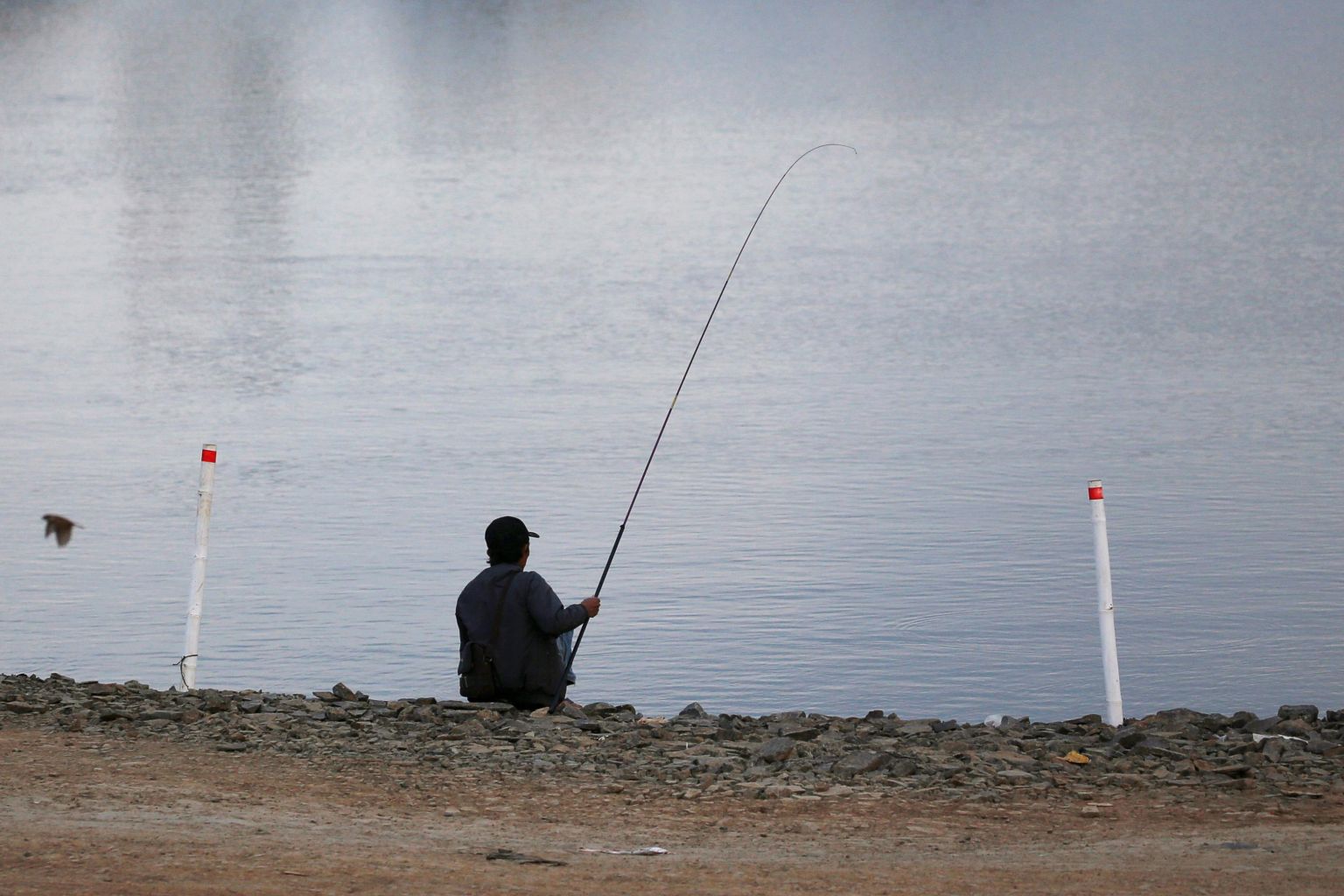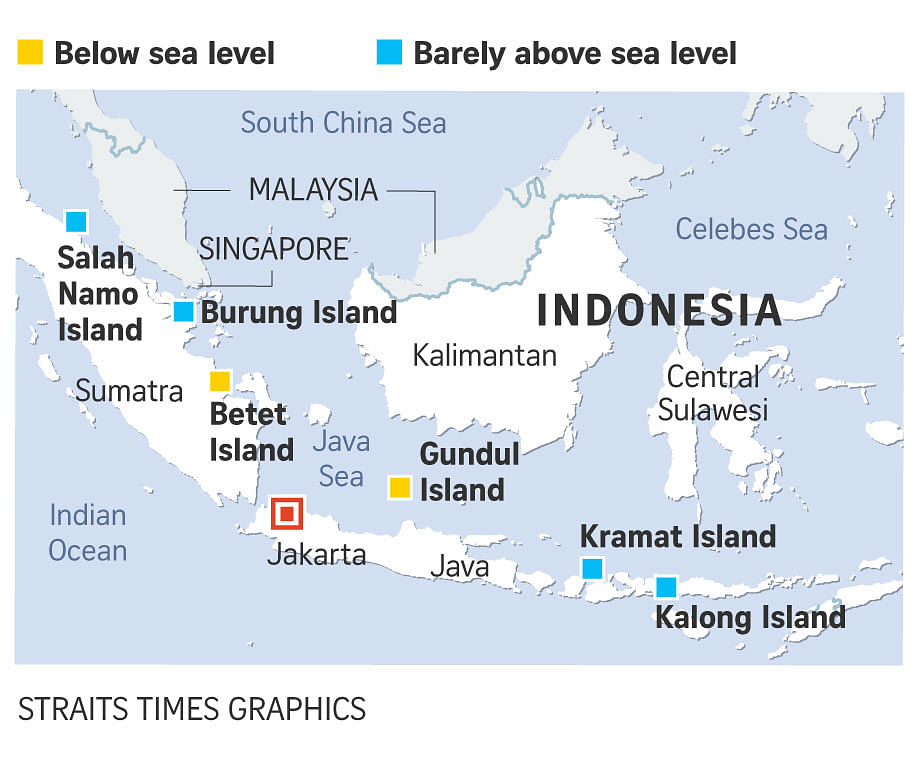2 Indonesian islands vanish; more at risk
Sign up now: Get insights on Asia's fast-moving developments

Climate change-driven rising sea levels particularly threaten archipelagic countries like Indonesia, where millions of people currently live in low-lying coastal areas.
PHOTO: REUTERS
JAKARTA • Two small islands in South Sumatra have disappeared as a result of rising sea levels driven by climate change, while four other islands are already on the brink of vanishing, the Indonesian Forum for the Environment (Walhi) has said.
The province's Betet Island and Gundul Island, which technically fell under the administration of Banyuasin regency, have submerged and are currently sitting 1m and 3m below sea level, respectively, according to Walhi data.
"These islands were uninhabited. One of the islands, Betet, is a part of Berbak-Sembilang National Park," Walhi South Sumatra executive director Hairul Sobri said on Tuesday.
Should there be no significant efforts to address the ever-rising oceans, four other islands in the area with elevations of less than 4m above sea level could follow suit sooner or later, he said.
The four are Burung Island, which is currently at sea level; Kalong Island and Salah Namo Island, both of which are currently 2m above sea level; and Kramat Island, which is 3m above sea level.
According to Walhi, there are now 23 small islands located off the eastern coast of South Sumatra's Banyuasin.
Some of the islands are unin-habited, while others, including Salah Namo Island, have people living on them.
Mr Syahrul, head of the neighbourhood unit in Salah Namo Island and who like many Indonesians goes by one name, said most residents had already known that the rising seas could submerge their island and had moved their houses tens of metres away from their original location.
Climate change-driven rising sea levels, which come with further warming of the earth, particularly threaten archipelagic countries like Indonesia, where millions of people live in low-lying coastal areas spread across some 17,000 islands.
According to Walhi, a tropical country like Indonesia is more vulnerable to the effects of global warming, especially in South Sumatra, where people depend on coal, oil and natural gas, thus contributing to greenhouse gas emissions.
THE JAKARTA POST/ASIA NEWS NETWORK



